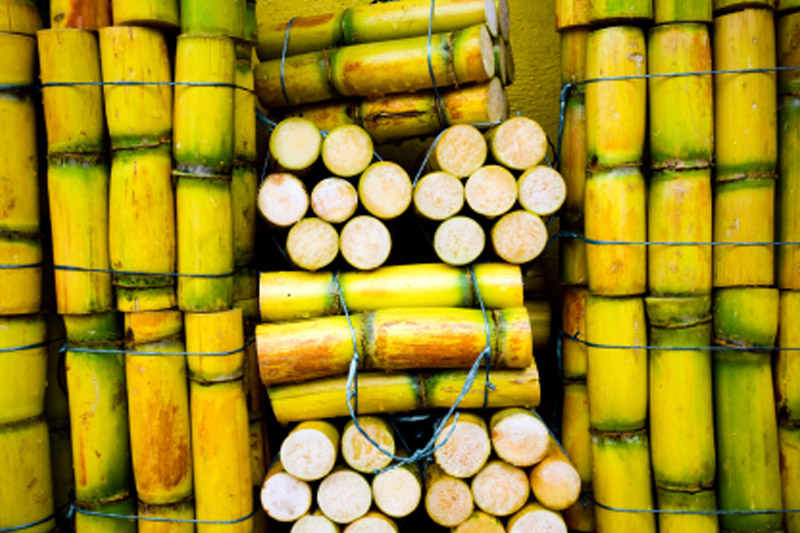Investing.com - U.S. soft futures were mixed during U.S. morning hours on Tuesday, with sugar prices fluctuating between small gains and losses as a short-covering rally which took prices to an almost two-week high on Monday ebbed.
On the ICE Futures U.S. Exchange, sugar futures for March delivery traded at USD0.1938 a pound, easing up 0.1% on the day. The March contract held in between a tight trading range of USD0.1927 a pound, the daily low and a session high of USD0.1941 a pound.
March sugar prices rallied nearly 6% since hitting a two-and-a-half-year low of USD0.1830 a pound on December 13, as market players closed out bets that prices would fall further after futures moved into oversold territory.
Sugar losses last week came as sentiment on the sweetener soured amid easing concerns over Brazil’s sugar harvest.
Brazilian state forecaster Conab said the country was expected to produce 37.66 million tons of the sweetener by the end of the season, 4.7% more than in the previous marketing year.
The forecast came after Brazil’s top sugar industry group Unica said that sugar output in the country’s Center South-region totaled 32.9 million tonnes as of December 1, compared to 31.1 million tonnes during the same week a year earlier.
Brazil’s Center South-region produces nearly 90% of the nation’s sugar. The South American country is the world’s largest sugar producer and exporter, with the USDA estimating the nation accounts for nearly 20% of global production and 39% of global sugar exports.
Meanwhile, Arabica coffee for March delivery traded at USD1.4495 a pound, dipping 0.1% on the day. The March contract traded in a narrow range between USD1.4482 a pound, the daily low and a session high of USD1.4565 a pound.
Coffee prices tumbled to USD1.4245 on December 14, the lowest level since June 11, 2010, amid concerns global supplies of the bean are more than ample to meet demand.
The International Coffee Organization said on December 11 that world coffee production in the current marketing year will rise 8.4% from the previous season to 146 million bags, with Arabica output increasing almost 11%.
Market players also noted that a rebound in Colombia's coffee crop further weighed and added to the view that global supplies of the bean are more than ample to meet world demand.
The commodity has been under heavy selling pressure in recent months, losing nearly 17% since the beginning of October.
Elsewhere, cotton futures for March delivery traded at USD0.7562 a pound, shedding 0.3%. The March contract was stuck in a range between USD0.7553 a pound, the daily low and a session high of USD0.7594 a pound.
The March cotton contract rallied to a six-week high of USD0.7624 a pound on Monday. Sentiment on the fiber improved after the U.S. Department of Agriculture last week cut its estimate for 2012-13 global cotton inventories to 79.64 million bales from 80.27 million forecast.
Despite the modest decline, the new forecast is still the highest since USDA records began in 1966.
On the ICE Futures U.S. Exchange, sugar futures for March delivery traded at USD0.1938 a pound, easing up 0.1% on the day. The March contract held in between a tight trading range of USD0.1927 a pound, the daily low and a session high of USD0.1941 a pound.
March sugar prices rallied nearly 6% since hitting a two-and-a-half-year low of USD0.1830 a pound on December 13, as market players closed out bets that prices would fall further after futures moved into oversold territory.
Sugar losses last week came as sentiment on the sweetener soured amid easing concerns over Brazil’s sugar harvest.
Brazilian state forecaster Conab said the country was expected to produce 37.66 million tons of the sweetener by the end of the season, 4.7% more than in the previous marketing year.
The forecast came after Brazil’s top sugar industry group Unica said that sugar output in the country’s Center South-region totaled 32.9 million tonnes as of December 1, compared to 31.1 million tonnes during the same week a year earlier.
Brazil’s Center South-region produces nearly 90% of the nation’s sugar. The South American country is the world’s largest sugar producer and exporter, with the USDA estimating the nation accounts for nearly 20% of global production and 39% of global sugar exports.
Meanwhile, Arabica coffee for March delivery traded at USD1.4495 a pound, dipping 0.1% on the day. The March contract traded in a narrow range between USD1.4482 a pound, the daily low and a session high of USD1.4565 a pound.
Coffee prices tumbled to USD1.4245 on December 14, the lowest level since June 11, 2010, amid concerns global supplies of the bean are more than ample to meet demand.
The International Coffee Organization said on December 11 that world coffee production in the current marketing year will rise 8.4% from the previous season to 146 million bags, with Arabica output increasing almost 11%.
Market players also noted that a rebound in Colombia's coffee crop further weighed and added to the view that global supplies of the bean are more than ample to meet world demand.
The commodity has been under heavy selling pressure in recent months, losing nearly 17% since the beginning of October.
Elsewhere, cotton futures for March delivery traded at USD0.7562 a pound, shedding 0.3%. The March contract was stuck in a range between USD0.7553 a pound, the daily low and a session high of USD0.7594 a pound.
The March cotton contract rallied to a six-week high of USD0.7624 a pound on Monday. Sentiment on the fiber improved after the U.S. Department of Agriculture last week cut its estimate for 2012-13 global cotton inventories to 79.64 million bales from 80.27 million forecast.
Despite the modest decline, the new forecast is still the highest since USDA records began in 1966.
